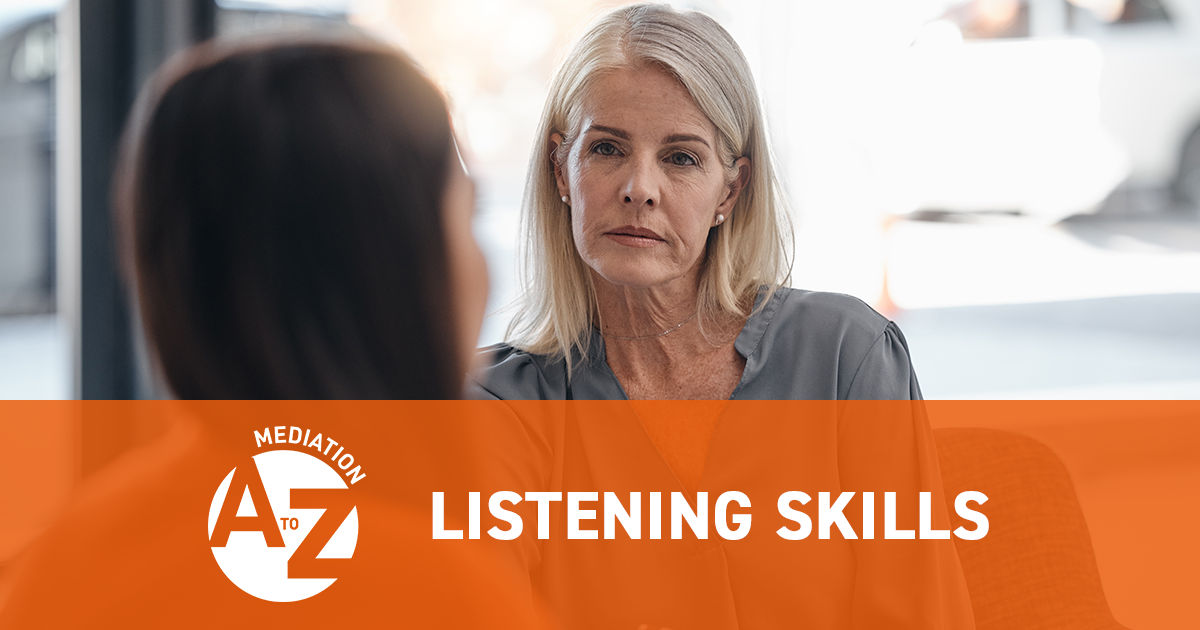
Posted on: December 11th, 2023

When hearing parties’ stories for the first time in the private individual meetings, the aim is to gain a clear picture of their experience of the conflict, while at the same time building some trust and rapport with them.
But with research suggesting that we only take in as little as 25-50% of what we actually hear, mediators need to employ a certain set of skills – active LISTENING SKILLS.
These skills allow us to communicate that we have thoroughly heard and understood what is being said, and that we have some interest and concern for the person’s predicament. At the same time, we are giving the person a chance to ‘offload’ difficult and often upsetting material.
We can listen actively by:
Paraphrasing
When paraphrasing, we give back to the speaker our own description of what we believe they have said. It is important when paraphrasing not to change the meaning or add our own interpretations. Done well, paraphrasing can strongly indicate our thorough understanding of the person’s experience.
Reflecting
We can acknowledge and confirm by giving back to the speaker a word or two of what they have just said. By using reflection, we help the speaker move on to the next ‘thought’, but without questioning them.
Expressing empathy
Empathy is the temporary experience of another person’s feelings. A key mediator skill, it involves putting yourself in the shoes of another, or trying to see things through their eyes. Crucially, it is not the same as sympathy, which involves identifying with the other person and taking their side.
Slowing down the pace
When listening actively, it can sometimes help to slow down the pace for a moment, to vary the tone and volume of our voices, and to allow pauses in which the speaker can gather their thoughts and focus in on what is important for them.
Summarising
We can provide selective and occasional summaries of what the person has said so far to help show our understanding. These summaries also provide a natural point at which the speaker can begin the next part of their story, rather than repeating themselves.
It's important to recognise, however, that active listening is not something that necessarily comes naturally to us. Instead, it is a skill that often requires years of practice and hundreds of completed cases in order to fully master. Done right though, it can be a difference-maker in the outcome of a mediation.
Learn more about active listening skills on our mediation training courses, either as an individual on one of our open-access courses, or as an in-house course for your organisation.